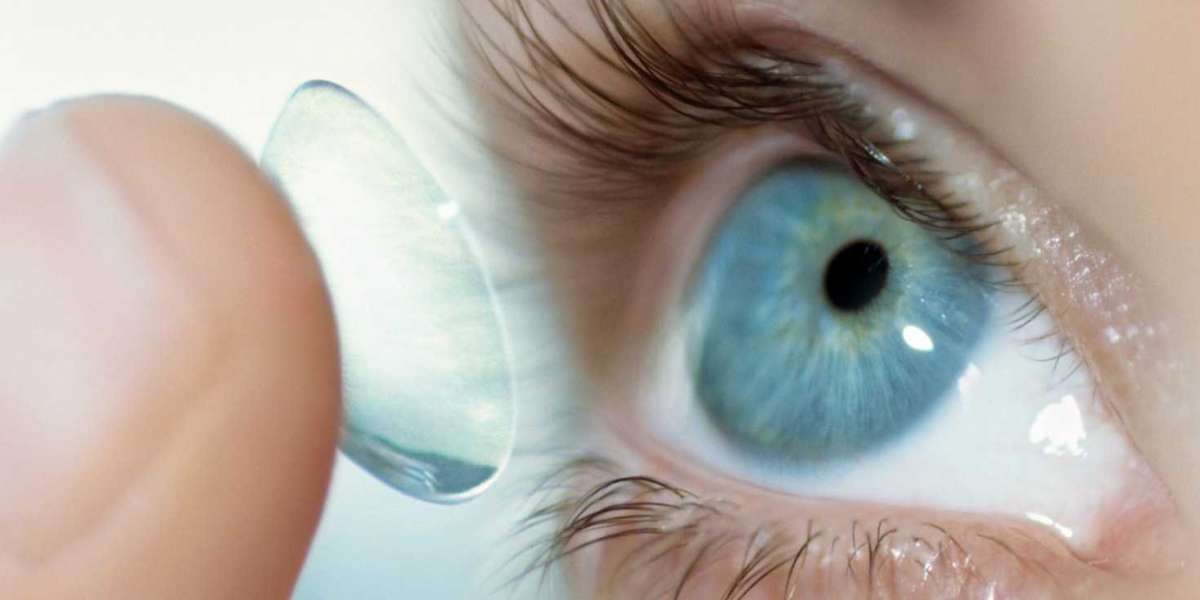Choosing the Right Contact Lenses: Types and Considerations
Contact lenses have revolutionized the way millions of people see the world. They offer a convenient and effective alternative to eyeglasses, allowing for clear vision without the need for frames. However, with a variety of types available, it's essential to understand the different options and choose the right contact lenses for your unique needs. In this guide, we explore the types of contact lenses, considerations for choosing the right ones, and address common concerns like dry eyes, astigmatism, and allergies.
Different Types of Contact Lenses
Contact lenses come in various types, each catering to specific preferences and vision requirements:
- Daily Disposables: These lenses are designed for one-time use, providing convenience and eliminating the need for cleaning and storage.
- Extended Wear: Extended wear lenses can be worn continuously for up to a month, offering flexibility and reduced maintenance.
- Toric Lenses: Specifically crafted for individuals with astigmatism, toric lenses provide clear vision by addressing irregular corneal shapes.
- Multifocal Lenses: Ideal for presbyopia, these lenses offer both distance and near vision correction, reducing the need for reading glasses.
- Gas Permeable (GP) Lenses: GP lenses are rigid and provide excellent vision correction for various eye conditions, including astigmatism and keratoconus.
- Scleral Lenses: These large-diameter lenses are beneficial for those with severe dry eyes or irregular corneas, offering enhanced comfort.
Choosing the Right Contact Lenses for Your Eyes
Selecting the right contact lenses involves several key considerations:
- Prescription: Always follow your eye care professional's prescription to ensure accurate vision correction.
- Lifestyle: Consider your daily activities, such as sports, work, or social events, as they can influence the type of lens that best suits your lifestyle.
- Comfort: Different individuals may find certain lenses more comfortable than others. It's essential to try various options to determine what works best for you.
- Eye Health: Individuals with certain eye conditions may require specialized lenses. Consult with your eye care provider to discuss the most suitable options.
Wearing Contact Lenses with Dry Eyes
Having dry eyes doesn't necessarily rule out contact lenses. Some tips for managing dry eyes while wearing contacts include:
- Opting for silicone hydrogel lenses, which tend to retain more moisture.
- Using preservative-free artificial tears to keep your eyes hydrated.
- Taking regular breaks from digital screens to reduce eye strain and dryness.
Contact Lenses for Astigmatism
Toric lenses are specifically designed to correct astigmatism. They are stable on the eye and provide consistent vision. If you have astigmatism, consult your eye care professional to determine the appropriate toric lens prescription.
Contact Lenses for Allergies
Allergies can make wearing contact lenses challenging, but it's still possible with the right approach:
- Consider daily disposables to reduce allergen buildup.
- Use allergy eye drops to alleviate symptoms.
- Maintain a strict cleaning routine for reusable lenses.
Choosing the right contact lenses is a crucial decision that can greatly enhance your quality of life. By understanding the types of contact lenses available, considering your unique needs, and addressing common concerns like dry eyes, astigmatism, and allergies, you can enjoy clear vision and comfort. Always consult with your eye care professional for personalized guidance in selecting the best contact lenses for your eyes.
#ContactLenses #VisionCare #EyeHealth #Eyewearm #EyeCareTips #ClearVision













